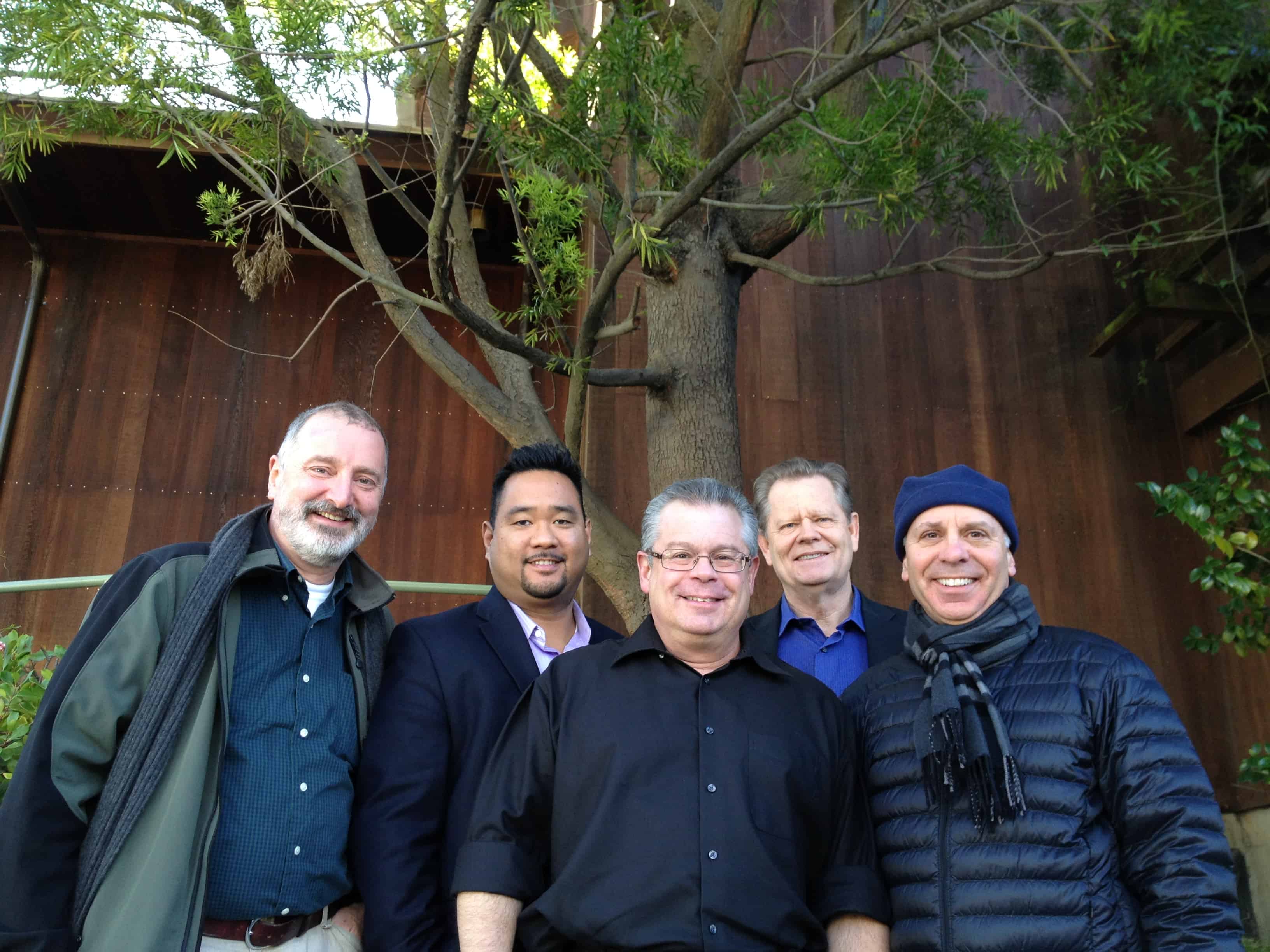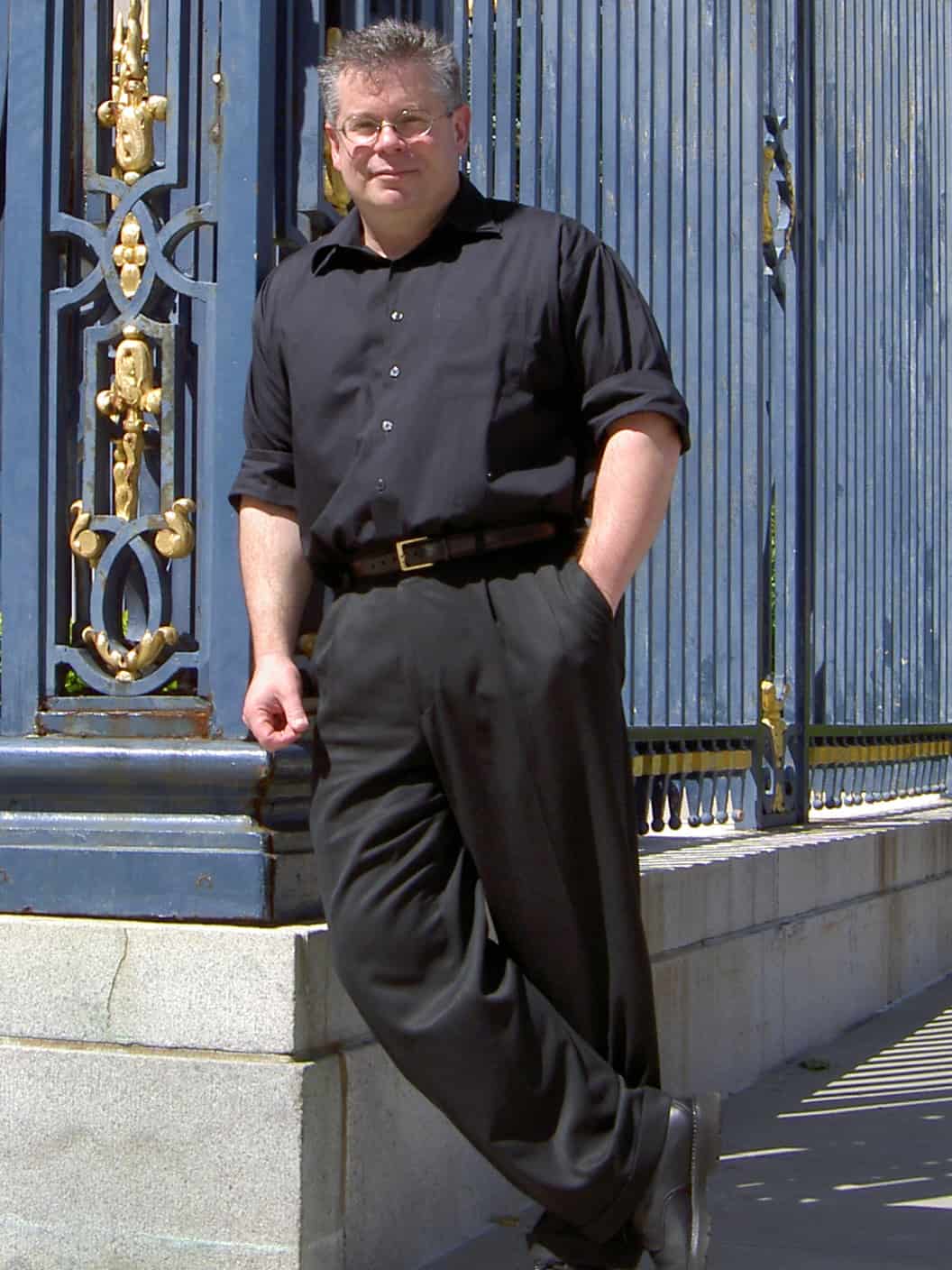 Yesterday, we told you about KALW’s upcoming broadcast of our San Francisco Performances, “Explorations in Music: Mozart in Vienna” series, and today we get to share an interview KALW did with Robert Greenberg about the Mozart in Vienna Series:
Yesterday, we told you about KALW’s upcoming broadcast of our San Francisco Performances, “Explorations in Music: Mozart in Vienna” series, and today we get to share an interview KALW did with Robert Greenberg about the Mozart in Vienna Series:
Mozart is often thought of as a “nice” composer, maybe even boring to the uninitiated. Do you hope to change that impression with the current season of lectures?
RG: Anyone who thinks that Mozart’s music is “boring” has to stop eating raw liver and cut back on their meth. The man was just about the most talented member of our species born within the last 300 years, and his music is filled with joy and pathos, exquisite lyricism and expressive power. The key, always, is to hear Mozart’s music within the context of his own time, and not filtered through the brain-addling, heart-stopping music composed since his death in 1791. Of one thing we can all be assured: Mozart’s contemporaries, who recognized his genius, found his music neither “nice” nor “boring.” Rather, in his own time, Mozart’s music was considered extravagantly complicated and expressively over-the-top.
Did Salieri really send a messenger to Mozart to mess with him like in the movie “Amadeus”?
RG: Read my lips: Salieri had nothing — NIENTE — to do with Mozart’s death. Neither did Salieri have anything to do with the commission for the Requiem Mozart left unfinished at his death. The commissioner was a wealthy musical amateur named Franz von Walsegg whose MO was to commission works from professional composers and then pass them off as his own. “That movie” — Amadeus — is great entertainment but terrible history.
Is there any composer alive today who you might consider to be as talented as Mozart, and why don’t you do a series about him/her?
RG: Is there any living composer as talented as Mozart? Unlikely (that was a guarded way of saying HELL NO). And even if there were, that person will have to be dead and buried before a proper appraisal of his/her life and work can be made.
 One of the delightful aspects of your presentations is your use of humor and colloquialisms to engage the audience. It certainly makes them pay attention…
One of the delightful aspects of your presentations is your use of humor and colloquialisms to engage the audience. It certainly makes them pay attention…
RG: There are sins and then there are SINS, and among the latter is rendering things that should be thrilling and life enhancing – things like music, food, and sex – boring. Music – like eating and that other thing – is a full-contact, full body-and-brain experience. To describe what is going on in a piece of music and its impact on the listener I require a complete verbal arsenal. Humor and colloquialisms are a big part of that arsenal. Audiences tend to over-pedestalize the dead, male, Euro-composers our programs focus on, which does the additional disservice of putting their music at arms reach. Among my jobs is to render these composers human and their music accessible. Humor and colloquial language go a long way towards doing just that. And no one can ever accuse me of being boring.
Our radio presentations are recorded from live performances in San Francisco and Berkeley under the auspices of San Francisco Performances. Among others, you’ve “explored” quartets of Mendelssohn, Beethoven, Kodaly, Bartok, and Schubert. Have you and the ASQ taken the shows “on the road” or are there plans to do so?
RG: We have taken our show on the road. We do an annual series at the Mondavi Center at UC Davis, and over the years we’ve appeared together at Merkin Hall in New York City; the Library of Congress in D.C.; and at the Center for the Performing Arts in Scottsdale, Arizona. I think I speak for all of us when I say that we’d love to do lots more
such performances, and if anyone out there reading this knows of a venue with scads of money to spend and a hunger for great programming, well then, send ’em my way.
It is very likely that our 2015-16 season will have a Beethoven focus. Each concert would feature a Beethoven quartet on the first half, and then a quartet by another composer that was inspired by the Beethoven or is, in some way, related to the Beethoven. We would, in the fairly near future, also love to build a program around the quartets of the so-called “Second Viennese School”: Schoenberg, Berg, and Webern. These guys wrote GREAT music, music that is not nearly as daunting as audiences generally believe it to be. It would be a real privilege to present their music to our audience.
